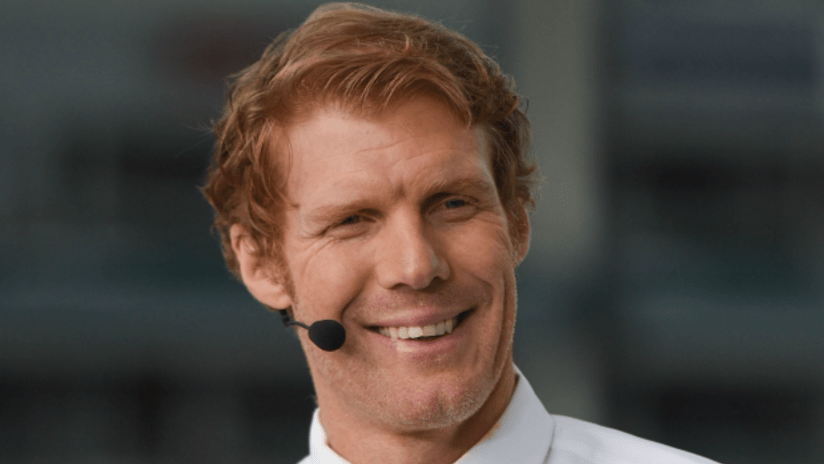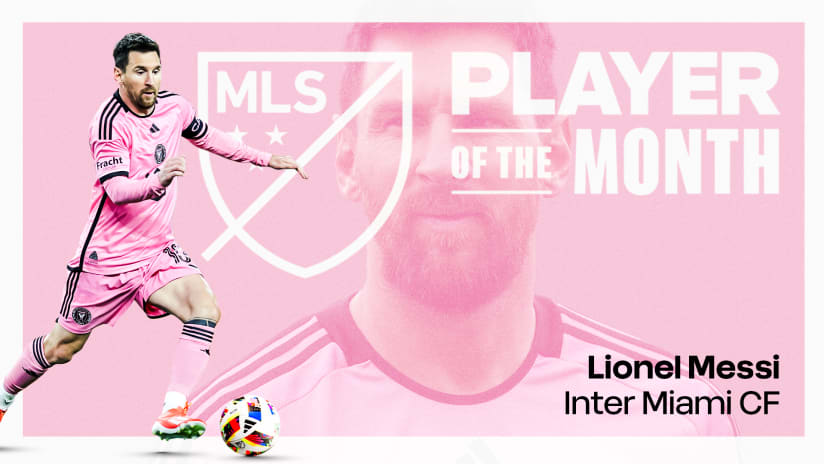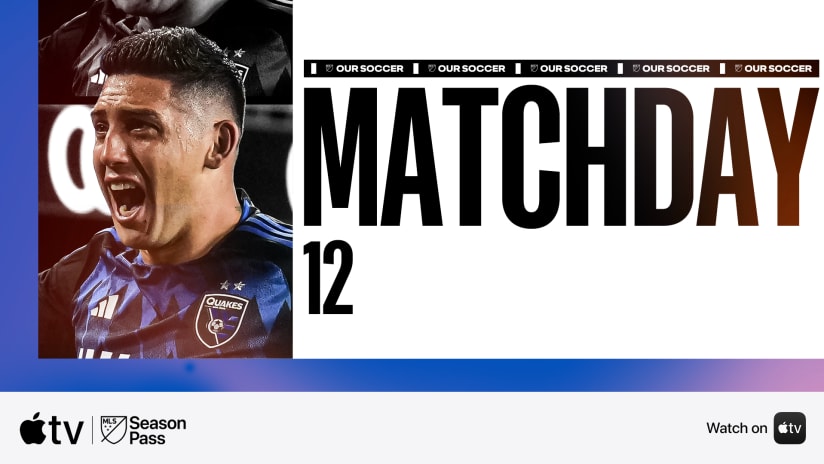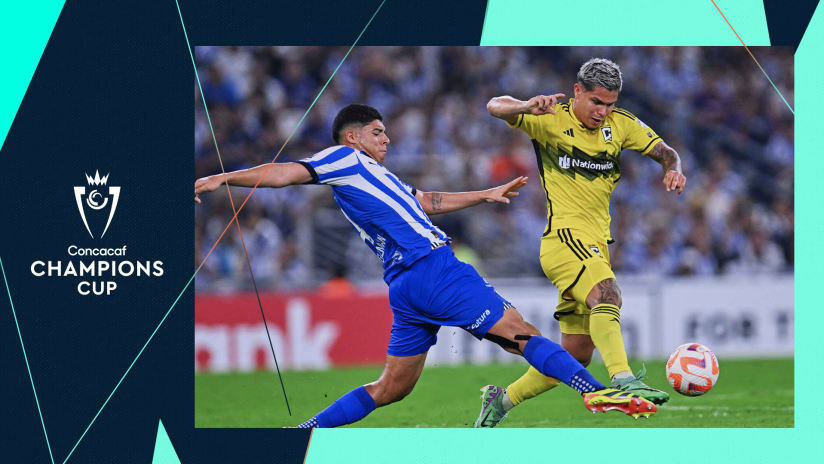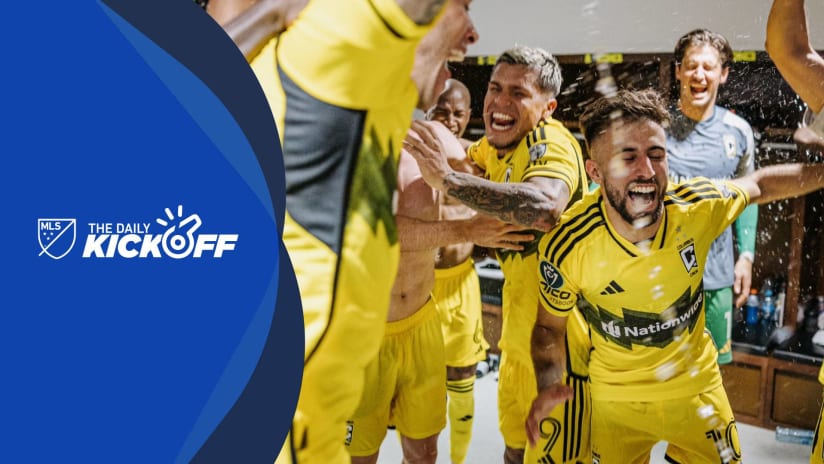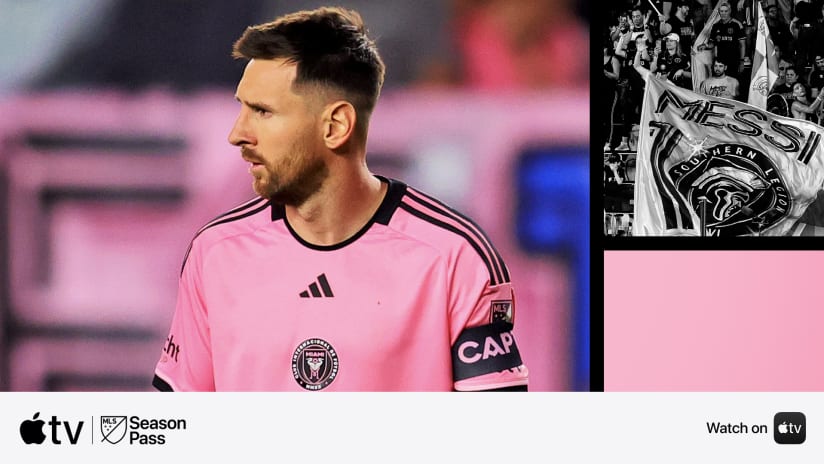Want to hear from some of the notable names around the league? MLSsoccer.com contributing editor Alicia Rodriguez spends 10 minutes talking to some of the big names in North American soccer.
Alexi Lalas is a former MLS and US national-team player, a former executive in the league and currently works as an analyst for FOX Sports, who will broadcast their first games of the MLS season on Sunday, with a doubleheader featuring Sporting KC against the New York Red Bulls (7 pm ET, FOX Sports 1/FOX Deportes) and the Seattle Sounders against the New England Revolution (9:30 pm ET, FOX Sports 1/FOX Deportes).
Ahead of MLS' 20th season, Lalas looks at the big picture of what MLS has accomplished since the establishment of the league, discusses what life would have been like if social media was around when he had been playing and makes a couple of predictions for the coming season.
RODRIGUEZ: MLS is entering its 20th season. There have been a number of changes over that time; what are some that have been most striking to you?
LALAS: A couple that stand out to me: One, and this is much more big-picture, but the American soccer fan, and in this case the North American soccer fan, and the evolution of that fan. When we started out this league, it was by design focused on families and kids and the “Barney-fication” of the sport, and the Chuck E. Cheese nature of it. Like I said, it was by design and it was strategic, and it worked.
As that generation grew up with MLS as part of their sports landscape, they wanted more. This transition into a supporters' culture and a much more young adult-oriented type of product and presentation, I think it just mirrors the increased size and education and passion that the North American soccer fan has. It’s no longer niche, it's come above ground and it’s powerful and it wants [an] authentic and organic type of soccer experience. So that’s one thing.
The infrastructure is the other. In terms of the stadiums, you start with the Columbus stadium coming online, and I remember watching that first game from Columbus and with the way that we look at it now, it was an amazing moment to see that type of environment and the aesthetics of it, how it played out on television, and when you were there. Little did we know, that was only the beginning for stadiums to come. It’s all fine and well to have a good product, but you need to have a good box. I think MLS recognized that early on, and there’s a lot of beautiful boxes now to put that product in.
Thirdly, the business of the league: TV contracts, sponsorship, these boxes that now have naming rights, sponsors, sponsors across the chests of jerseys, those kind of things are important and part of the evolution of the sport and of the league.
Then the actual product on the field. The opportunities that players have, whether it’s the academies that are set up, whether it’s them growing up in a time where they can see soccer and they can be coached by former players and from a young age. So those are a good collection of things I’ve seen progress and evolve and I think are key to why, 20 years later, the league has survived and, in many instances and situations, thrived. But still a long way to go.
RODRIGUEZ: I often hear the generalization that MLS is “more competitive” now. Do you agree with that?
LALAS: I don’t necessarily agree that it’s any more or less competitive. There are more teams, but it’s all relative. So there are more players and opportunities for players, too. I look at some of the quality that existed back then. People talk about the addition of teams now, you’re looking at a time back in the turn-of-the-century era where there was a point where we went down to 10 teams. Now, you’re doubling the amount of teams. Is the product being diluted?
I still see that there are individual teams that function better than others as teams. And there are individual players that are incredible players. They were incredible in the beginning of the league, and they’re incredible now. But any type of quality discussion I think also is shaded and colored by a comfort level and a historical perspective on how to play in MLS that you didn’t have in the beginning. This isn’t me just standing up for the past or anything like that. I think if you asked me which time would you rather have played in, I’d much rather play – given all the advantages that exist now – in the modern MLS, as opposed to starting out. But there was some pretty good quality back then, and there weren’t as many teams. So I think it’s an ongoing debate. But I certainly feel that, stylistically, the way the teams have evolved has gotten better in terms of recognizing who they are and having an identity in the way that they go about their business on and off the field, and that’s just something that comes with time.
RODRIGUEZ: You were a defender, of course, and I’m wondering if you think defending is more challenging now or back when the league was just forming?
LALAS: Well, I don’t play now, so I don’t quite know. We always do these inevitable compare-and-contrasts, “How would this player do back then?” But when we do that, we have to recognize that a good player now, for me, would have been a good player then, and once again, it is relative because the advantages that the player has now, if I gave them to players considered good players in the past, I still think they would have ended up at the same level. They would just have had those advantages. If you took someone from the present and put them in the past, they wouldn’t have those type of opportunities, but they would have the same opportunities everybody else had, and they would still be good relative to everybody else.
That’s the way I always look at it, and that’s a long way of saying I don’t think it’s harder to be a defender now as opposed to the past. In terms of the quality of the player you’re playing against, what I do think can be argued is that the changes of rules and the way the game is refereed now and the laws of the game that encourage more attacking and that give more opportunity to attacking soccer – which by the way, I agree with wholeheartedly – that is where it may make it more difficult than the past. Whereas in the past, I could get away with a lot more and I could kick people all over the field and not be punished. Much of the stuff I did in the past, I couldn’t get away with now. That also doesn’t mean I couldn’t adapt to a new way of playing in 2015. But definitely the game has changed so that defenders are often put at a wonderful disadvantage, because I encourage that. I love when things are done to encourage more scoring and more attacking, even if, as a defender, it would have made my job more difficult.
Rodriguez: Recently, you were interviewed about your skills on Twitter. If social media had been around when you were a player, what would have been different for you, and for fans?
LALAS: Well, I always considered myself a performer and an entertainer. And I have never apologized for that, and I never thought that it took anything away from my desire to win or my competitiveness. So when it comes to social media, if it had been around then, I would have looked at it as, “Hey, this is another platform that I can access and harness to perform and to entertain.” And just like anything, you are responsible for the way you perform and you entertain. So I recognized fully well then, and I probably would have recognized it then what you can and what you can’t do out there. And making it interesting without putting yourself in a situation that is going to become detrimental for you, or your family, or your team, and all of those things. But then a lot of that comes with time and learning, and a lot of people certainly make mistakes, and I probably would have made mistakes. I probably would have, at times, with camera phones and Twitter and all the different things, gone about my business a little bit differently. But you adjust to the climate you are in at the moment. I have no doubt I would have found a way to adjust. It would have been interesting.
I always wonder what a timeline would look for somebody, players from the past, if they had had that. Mine would have been all over the map, because I had wonderful experiences, and to have that public diary out there might at times have been interesting for folks, and maybe at times it would have been problematic.
RODRIGUEZ: What do you think is necessary for MLS to make the next step forward in its development as a league? Is there a move or two that stands out to you?
LALAS: We always want more. That’s what makes our countries, I think, great, because we’re never satisfied. We often kick ourselves for what we haven’t done, but I do think there is a moment, maybe in this 20th year, to pat ourselves on the back for what we have done, because it’s been unprecedented because of the growth on and off the field, when you put it up against other leagues and other sports.
Having said that, the continued growth of MLS is key, because I think we all want what the league is promising and hoping happens, where it becomes the best league in the world, and all of the perceived best players are here. Now, the quickest way to do that is through money, and you need look no further than the Premier League to see how if you market yourself correctly and you spend oodles of money, players will migrate quickly, and you will find the perceived greatest league on your hands in a short period of time relative to other leagues.
The reason why players are going to England is not because of the weather, or the food, it is because of the money and the perception that now comes from playing there. That could certainly happen – it’s a little more tricky when it comes to the US, [but] it certainly could happen, because you add the advantage and the asset that North America has of being a place that people already want to go, and families want to be in, you get paid consistently. That’s a long way of saying as the league continues to grow and more money is spent on the product. I’m not saying the product necessarily gets better because of that, but the perception of that product starts to change. You could possibly see a mass migration because the players have both the money that they crave, but also the perception of quality that is an important factor in these things.
RODRIGUEZ: Finally, who’s going to win Supporters' Shield and MLS Cup this year?
LALAS: The logical choices when you’re talking about that are the Galaxy and Seattle. Seattle pretty much … hasn’t done that much big [in the offseason], so they’re looking at themselves to be better because of consistency. LA, obviously you have to look at the loss of Landon Donovan and now with Steven Gerrard coming in, how that changes.
If I had to pick somebody right now, I would pick Seattle, to not win the Supporters’ Shield and go for MLS [Cup], because that was the downfall and often is. It’s hard to win that double in MLS. So for this [year], they don’t win Supporters’ Shield, but they win MLS Cup.
And then Supporters’ Shield … How about Roger Espinoza comes back into the equation over there in Kansas City and they go on a roll? Matt Besler says, “I’m so glad 2014 is over,” and comes in strong. How about that? How about KC coming out of the East [to the West] and finding a way to get right back on top.

